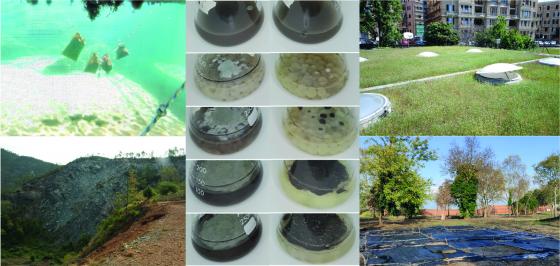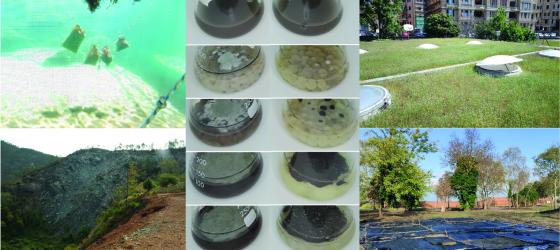Fungi and plants play a key role in restoration and renaturalization of environments subjected to various levels of anthropogenic pressure. Moreover, such organisms can be used: i) for waste recovery exploitation under the banner of green economy and in line with a sustainable development; ii) for the improvement of life quality for re-functionalizing urban settings (Nature-based Solutions). In this context, the applied research carried out at the laboratories of DISTAV covers the areas of agriculture, food, industry, urban, and human health.
The DISTAV's lines of research regard the following topics
- Mycoremediation and phytoremediation in environmental compartments (air, water, sediment, soil) contaminated with heavy metals and/or hydrocarbons (M. Capello, S. Di Piazza, P. Marescotti, M. Mariotti, E. Roccotiello, M. Zotti)
- Nature-based Solutions for the improvement of environmental quality and human health in natural and artificial ecosystems (S. Di Piazza, M. Mariotti, E. Roccotiello, M. Zotti)
- Assessment of plant response to abiotic and biotic stresses in the urban ecosystem (E. Roccotiello, M. Mariotti)
- Biomining, i.e. the use of fungi and bacteria for the extraction and recovery of metals and minerals, including rare earth elements, from different types of waste, such as mining waste, e-waste, sediment and water (M. Capello, C. Carbone, S. Di Piazza, M. Giovine, M. Mariotti, P. Marescotti, M. Zotti)
- Environmental biomonitoring with fungal and plant organisms (S. Di Piazza, M. Mariotti, E. Roccotiello, M. Zotti)
- Assessment of metal accumulation in edible plants, mushrooms, and food safety (agri-food) (S. Di Piazza, M. Mariotti, P. Marescotti, E. Roccotiello, M. Zotti)
- Selection, conservation, and multiplication of microorganisms, in particular fungi, for application in bioremediation and biomining protocols (S. Di Piazza, M. Zotti)

